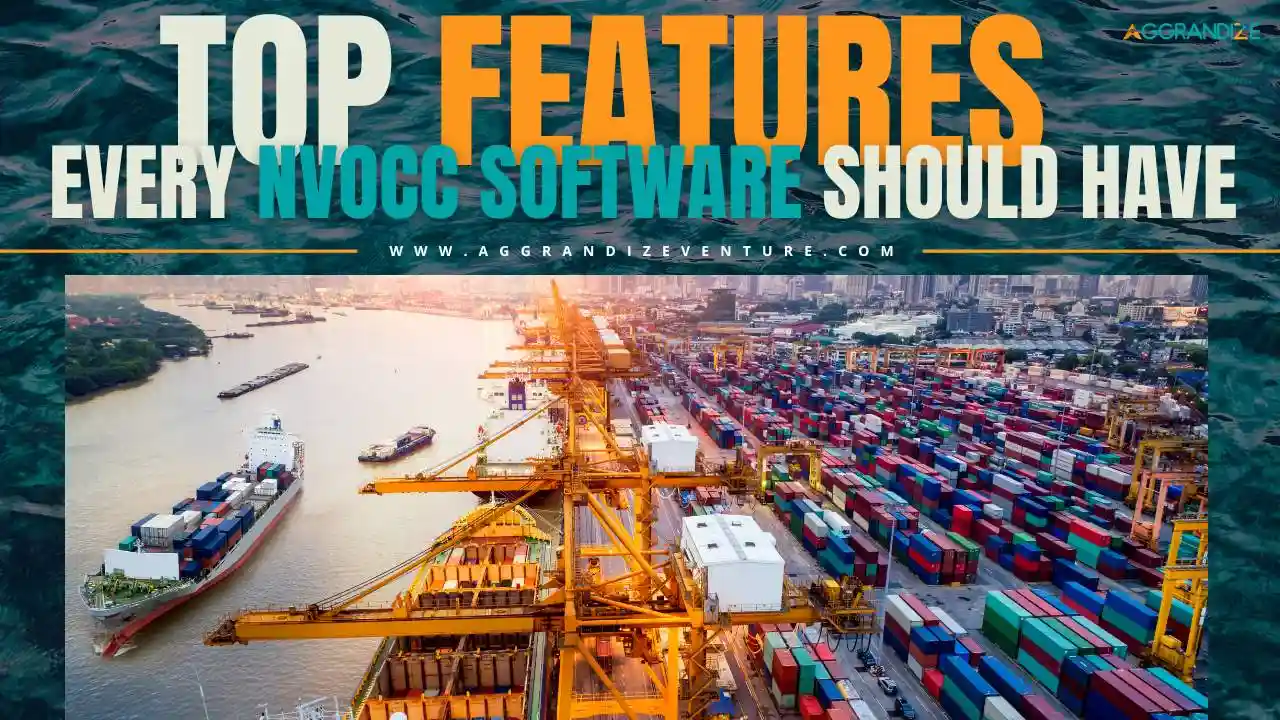NVOCC Operation
Top Features Every NVOCC Software Should Have
Date: 09-09-2024
In shipping and logistics, the NVOCCs (non-vessel operating common carriers) are crucial in ensuring that goods cross borders smoothly. NVOCCs make good use of software solutions which are highly effective in streamlining processes, increasing productivity, and satisfying customers. With so many alternatives to choose from, what's the best software option for NVOCCs that's tailored to their needs? This article is about the most essential features that will be included in the NVOCC software and will help you make a well-informed choice.
Documentation management is the backbone of any NVOCC operation. A software has to provide a high-level system for the creation and control of documents like Bills of Lading, shipment manifests, invoices, and customs declarations due to the complicatedness of shipping and logistics. To be optimal, the NVOCC software should enable easy onboarding, thereby ensuring smooth communication and minimizing delays. The services provided include international standardized templates that will help not to introduce mistakes. Additionally, the software must allow for document sharing in real-time with customers, partners, and regulatory authorities, thereby ensuring effective communication and minimizing delays.
Cargo tracking has become a must-have feature that an NVOCC software should offer. Customers
these days have a tendency to need real-time information about the status of their shipments.
The software ought to contain information such as tracking from the origin to the destination.
Efficient cargo movement which is facilitated technology of advanced kind such as GPS, RFID,
and
IoT sensors should make it possible to provide information on the exact location of the
cargo,
its status, and its estimated time of arrival through real-time. It also ought to offer the
notifications for the possible delays or the route changes, thus giving NVOCCs a chance to
handle the situations that come up appropriately.
A competent Customer Relationship Management (CRM) module is a must-have for NVOCC software in order to effectively manage the relationships with clients and to boost customer satisfaction. The module is expected to empower the NVOCC to keep complete client profiles record, interact with clients, manage sales pipeline, and ensure smooth communication. The CRM features help NVOCCs to offer tailor-made service which includes fast management of queries and building strong ties with clients. On top of that, the program will have features like automated follow-ups, email marketing tools, and client reporting that help to build long-lasting customer loyalty.
Shipping rates often experience fluctuations due to multiple reasons such as variations in fuel
prices, port fees, as well as seasonal demand. Thus, NVOCC software needs to provide pricing
tools that are dynamic, enabling the real-time rate management and exact cost calculations.
A quality software solution will include a quotation tool that can promptly send out rates of
the latest prices, routes, and types of cargo. This aspect is not only a time-saver but also a
tool the NVOCC employs to stay competitive in a fast-changing market. In addition to that, the
automatic rate updates along with the connection to the major shipping lines will improve the
quote process's accuracy and speed.
Vale of the data can hardly be overstated in the field of logistics and shipping, and the NVOCCs
need software that will provide total reporting and analytics. The software is to have an
elaborated report on the main KPIs consisting of shipment volumes, transit times, profitability,
and customer satisfaction.
Use of advanced analytical features can facilitate the NVOCCs to find out trends, demand
forecasting, and decision making based on data. Although interfaces are not perfect in the past,
the use of dashboards and visualizations that are customizable bring into limelight the
understanding of complex data thereby making NVOCCs to optimize operations and improve overall
efficiency. Besides, the automated report generation and distribution feature can help save time
and avoid manual effort.
Today NVOCC software must be able to provide seamless integration with Enterprise Resource
Planning (ERP), Warehouse Management Systems (WMS), and
financial software, because of the
digital age. In this way, the information flows without any hurdles between the various
departments and therefore the manual data entry is reduced to a minimum.
The integration capabilities also cover external partners such as shipping lines, freight
forwarders, and customs authorities. NVOCC software with open API architecture can connect
third-party systems very easily, thus, real-time data exchange is ensured and operational
efficiency is improved.
Customer experience is the key to the success of software adoption. NVOCC Software must have a
user-friendly interface that is designed to be easy to navigate and understand. An easy-to-use
interface cuts down the learning time for new users, helps to avoid mistakes, and increases
productivity.
Also, considering the fact that mobile devices have become the main form of technology in
people's lives, it is equally important for the software to have mobile access. Mobile-friendly
designs and applications enable the NVOCC staff to get vital information and features in places
they can't even set up an office. The availability of this information makes it easier to
respond and make decisions in the fast-moving workplace.
Choosing the right NVOCC software is crucial for optimizing operations, improving customer satisfaction, and staying competitive in the global shipping industry. By prioritizing features like comprehensive documentation management, advanced cargo tracking, integrated CRM, dynamic pricing tools, and robust reporting capabilities, NVOCCs can enhance their operational efficiency and deliver superior service to their clients. In an increasingly digital world, investing in the right technology is not just a choice—it's a necessity.